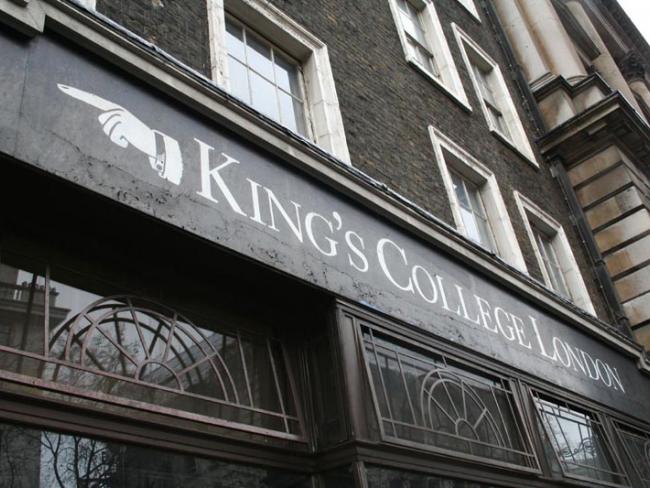23 February 2017

King’s College, London. Photo by Katy Ereira (CC-BY-SA 2.0).
Unison members working for cleaning contractor Servest at King’s College London have been offered higher staffing levels after went on strike for two days on 26 and 27 January over excessive workload and a threat of reorganisation.
The walkout came after 98 per cent of the Unison members voted for strike action – and 90 per cent of the cleaning workers are union members. The picket line was a great success with strikers dancing to Latin American music from 5 in the morning until 3 in the afternoon over the two days. It was a great atmosphere with King’s College staff, students and others joining in solidarity.
Campaign
The strikers, primarily workers who have come to Britain from different Latin American countries but also from the Caribbean and Eastern Europe, are at the forefront of a campaign in the cleaning sector against unmanageable workload, understaffing levels.
‘The outsourcing has enabled King’s College to deny any responsibility.’
Their fight is exposing the detrimental effects of outsourcing on working conditions. In another twist, the outsourcing has also enabled King’s College to deny any responsibility for the company’s wrongdoings and to refrain from intervening
Problems started to emerge soon after King’s College University awarded the cleaning contract for all its buildings to Servest, which operates in Britain, South Africa and other countries. The contract came in force in September 2014, and Servest imposed a number of operational changes – shifting the cleaning system from “in-put” to “out-put” specification and moving away from employing staff on a part-time to full time basis.
Standards
In real terms, in-put means number of cleaners and hours to clean everything including providing cover staff. The out-put spec means looking at the results. This is also known as “smart cleaning” – cleaning areas that are dirty.
In practical terms, the company saves money as it uses out-put spec to recruit fewer people and put fewer hours into the contract while expecting a similar level of cleaning. This spec works only when the company and the client agree on a drop of the cleaning standard and add hours to the current staff when needed.
At first staff saw this as potentially positive, but this soon proved to be an illusion and the relationship between the employer and the staff started to deteriorate. Faced with what they saw as a high level of incompetence at almost every level of the company, including the payroll department, and extremely poor management, workers started to organise collectively.
Organisation
Collective organisation was spurred on by the eagerness of the company to increase profit at the cost of workers by a policy of what it called “natural wastage” –the company did not refill jobs when they became vacant and refused to provide cover staff even for planned absences such as holidays. This cost-saving exercise in turn led to an increase to workers’ areas of work and duties.
Servest was not willing to discuss the operational changes or consult with workers and their union to reach an agreement and smooth their implementation. Instead, it implemented a punitive policy based on threats by way of verbal and written warnings for not reaching the desired standard of cleaning. Workers were shut out of any involvement in the decision-making process.
On top of this, Servest’s eagerness to maximise profits by exploiting the workers squeezing their labour laid the grounds for workers collective consciousness. Servest’s policies had to be brought to an end. The workers hence began to realise their vested common interest and that this was fundamentally opposed to the interests of their employer.
The workers understood not just that changes needed to be brought about, but that this required them to take collective action. These Unison members have the willingness and the organisational capacity to challenge these policies and they did so.
Split shifts
The offer to increase staffing levels was received positively by the members. But the practical effects have yet to be seen and the threat of reorganisation, including splitting their shifts, is still in place.
Currently, workers work 6 hours a day from 5am to 12pm. Servest wants to split the shifts so they would have to work 3 hours in the morning 3 hours in the evening.
The split shifts will inevitably lead to workers leaving, which could weaken the union’s structure and organisation.
But with 90 per cent membership density and a sound union structure, this is a fight the workers are more than equipped to win.
